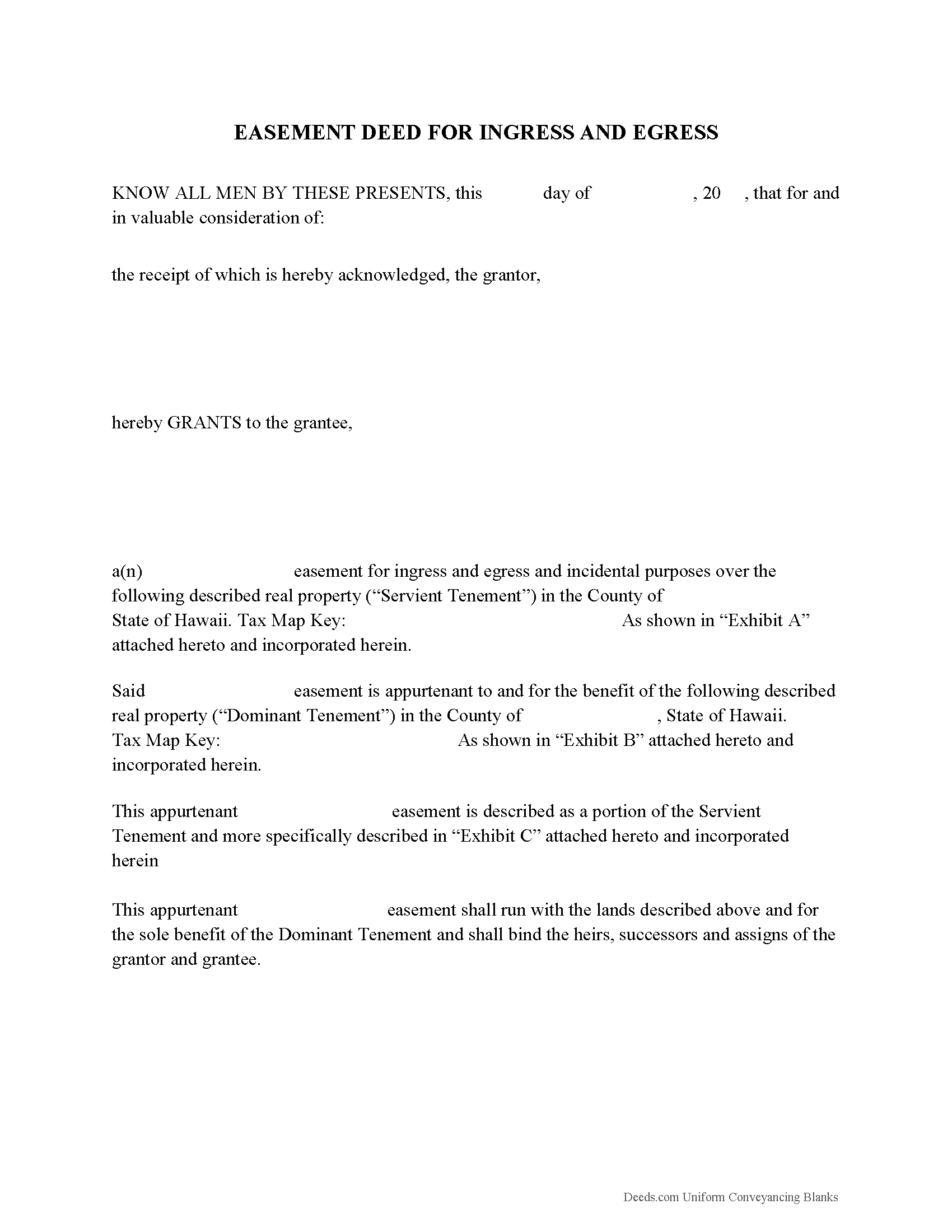Download Hawaii Easement Deed Legal Forms

Hawaii Easement Deed Overview

An easement is a non-possessory property interest that one person has in land owned by another; and the easement deed entitles the holder of the instrument to a specific limited use or enjoyment of the owner's land. Hawaii easements are either appurtenant or in gross.
Conservation easements are interests in real property created by deed, restrictions, covenants, or conditions, and are another type of easement used in Hawaii. The purpose of this type of easement is to preserve and protect the natural, scenic, forested, or open-space conditions of land; preserve and protect the structural integrity and physical appearance of cultural landscapes, resources, and cites which perpetuate indigenous native Hawaiian culture; preserve and protect historic properties as defined in 6E-2 and traditional family cemeteries; and preserve and protect land for agricultural use (198-1).
An easement deed is subject to the same conditions that apply to other real property documents in Hawaii. It must be signed by the grantor and acknowledged in the manner required by statute. The acknowledgement must be taken by an authorized individual and should be endorsed on the instrument or attached to it in the form provided or authorized by sections 502-42 or 502-45 of the Hawaii Revised Statutes (502-41). An easement deed can be acknowledged in Hawaii or can be made out of state.
Easement deeds and other instruments affecting title to real property in Hawaii are recorded at the Bureau of Conveyances in Honolulu. Hawaii has a dual recording system: both Regular System documents and Land Court documents are recorded at the Bureau of Conveyances. The Regular System follows a race-notice recording act while the Land Court System follows a pure race system. An easement deed should be recorded in whichever system was originally used for the property; it may also be recorded in both systems. Registered land, and the ownership thereof, is subject to the same burdens and incidents that are attached to unregistered land (501-81). Every conveyance or easement deed that is not recorded is void as against any subsequent purchaser, lessee, or mortgagee in good faith and for a valuable consideration, not having actual notice of the same real estate or portion thereof, or interest therein, whose conveyance is first duly recorded (502-83).